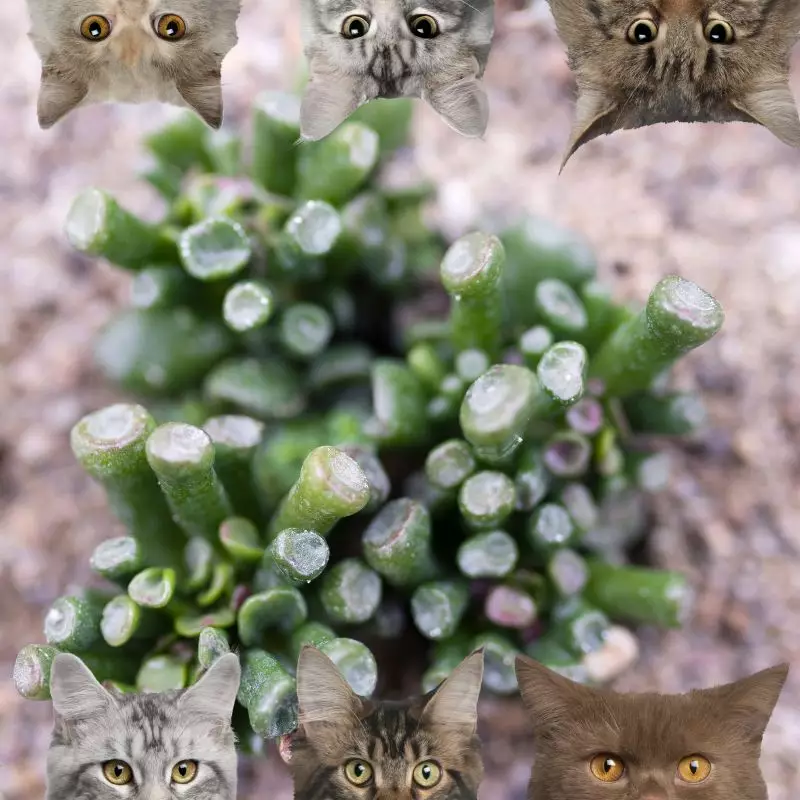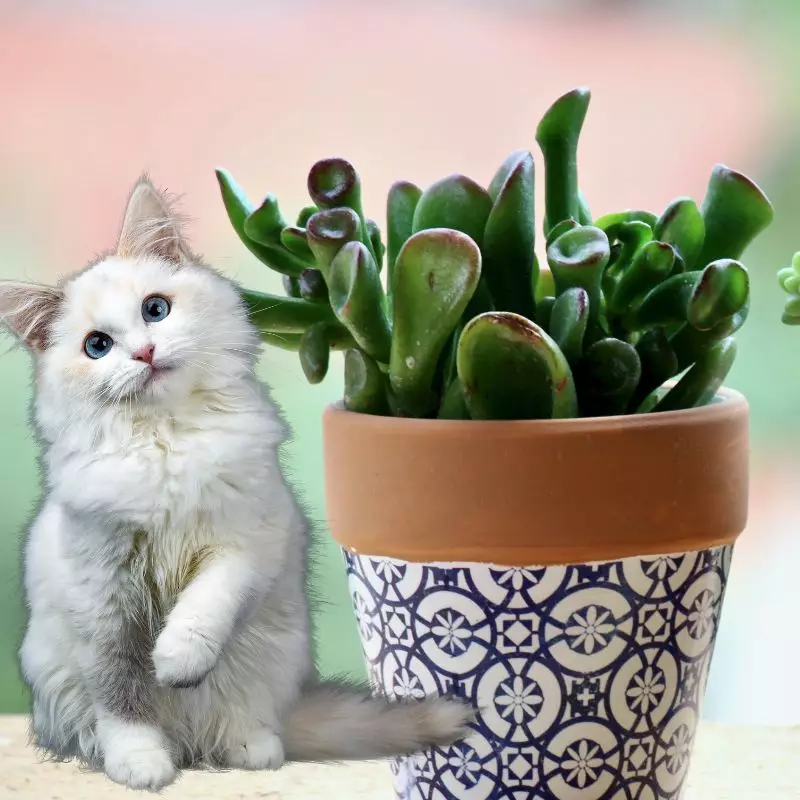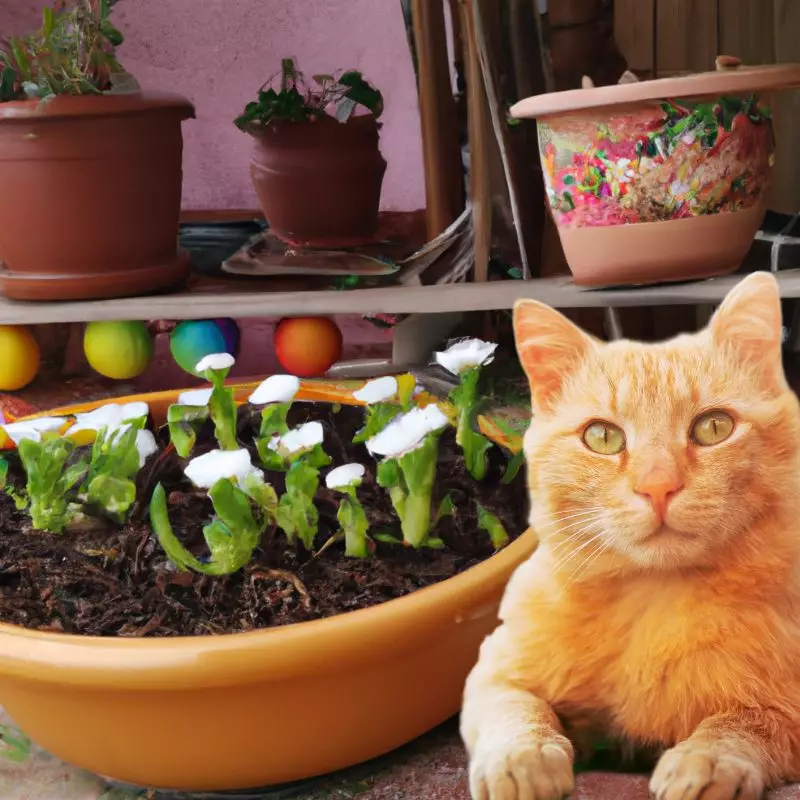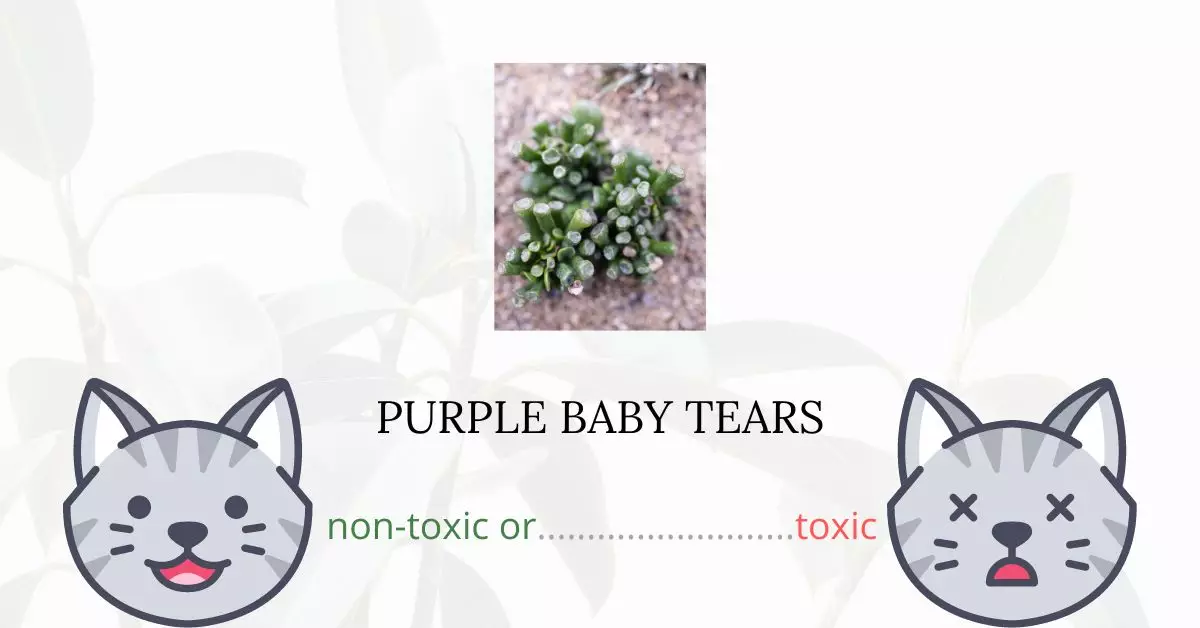Absolutely not. Purple Baby Tears are non-toxic and safe for cats.
To ensure the reliability and accuracy of this article, we collaborated with a team of experienced DVMs (doctors of veterinary medicine). Their expertise grants us the ability to provide the most current and comprehensive information regarding the potential risks of various plants and their effects on cats. Moreover, in addition to consulting with veterinary professionals, we’ve also conducted thorough research using high-authority websites such as the ASPCA and PetMD.
It’s worth noting that the ASPCA has classified Purple Baby Tears as one of the non-toxic plants for cats. Thus, cat owners can be assured that this plant lacks any properties that could harm their beloved feline companions.
Can Cats Eat Purple Baby Tears?

Purple Baby Tears won’t harm your cat if he happens to eat some. it is a pet-friendly plant so don’t worry if you catch him munching on it. It’s also crucial to remember that any plant, hazardous or not, can harm animals.
Ingesting even non-toxic plants might upset a pet’s stomach, especially if the animal has a sensitive stomach. Other plants may even have chemicals or pesticides on their leaves, which can further harm animals. Always try to prevent pets from eating indoor plants.
What is a Purple Baby Tears?

Purple Baby Tears (Frithia pulchra) also known as fairy elephant’s feet is a type of blooming plant that is unique to Gauteng Province in South Africa and belongs to the fig-marigold family Aizoaceae. Temperate grassland with significant summer rainfall is its natural habitat.
A little stemless succulent with bulbous oblong leaves with leaf windows at the tip and winter daisy-like blooms in magenta and white, it is just 10 cm (3.9 in) tall and 20 cm (7.9 in) wide. It has the capacity to contract beneath the soil’s surface during dry spells, preventing excessive desiccation but making it very difficult to locate. It must be grown inside under glass in temperate climates because it cannot withstand frosts.
Keeping Cats Away From Purple Baby Tears

Making your plant unattractive to your cat can be effective, even though training your cat is a wonderful solution. Citrus isn’t particularly liked by cats. They dislike the flavor and aroma, so spritz your succulent with water and squeeze lime, lemon, or orange juice on it.
If the soil around your plant is exposed, think about covering it with something breathable. Cover the dirt with a permeable material, like burlap. Apply a natural citrus repellant by spraying.
Plants to Avoid For Your Cats
If you are a cat owner and unsure if the plants growing in your yard are harmful to your cats, check out this list of toxic plants for cats. You can also check our list of non-toxic plants for cats.





